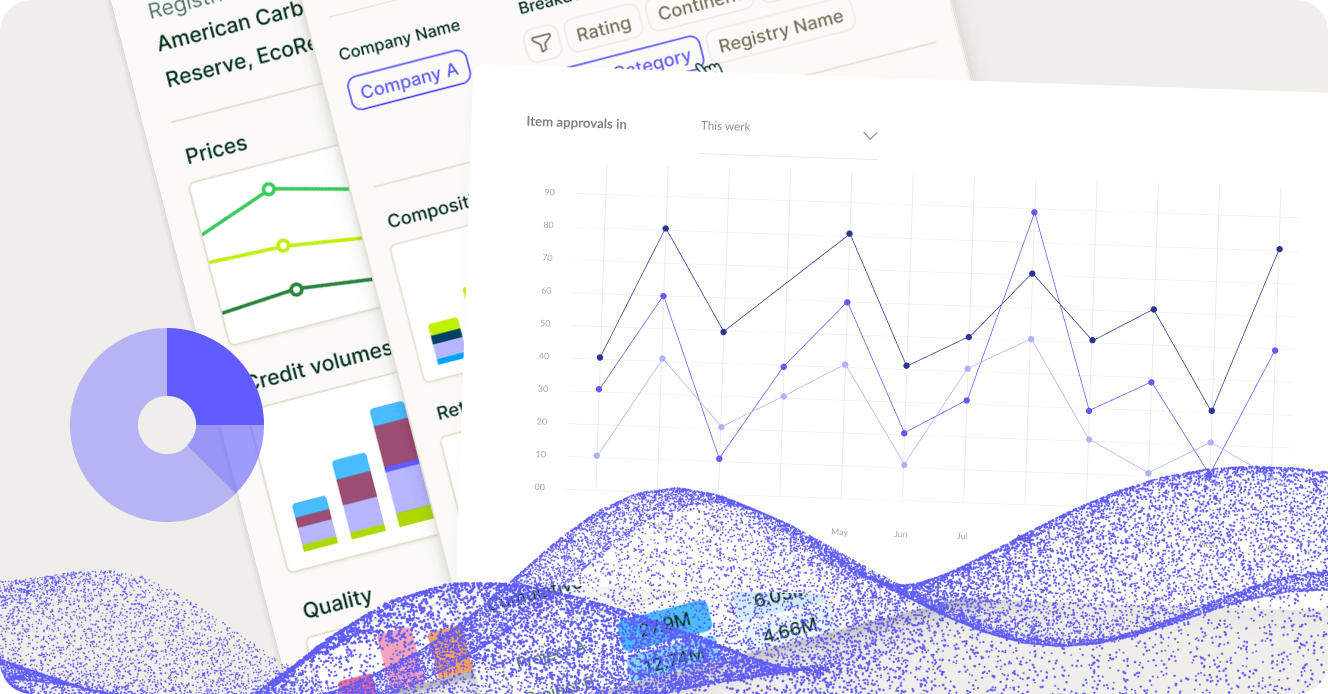“Over the years we’ve invested significantly in our field data team - focusing on producing trusted ratings. While this ensures the accuracy of our Ratings, it doesn’t allow the scale across the thousands of projects that buyers are considering.”
For more information on carbon credit procurement trends, read our "Key Takeaways for 2025" article. We share five, data-backed tips to improve your procurement strategy.

One more thing: Connect to Supply customers also get access to the rest of Sylvera's tools. That means you can easily see project ratings and evaluate an individual project's strengths, procure quality carbon credits, and even monitor project activity (particularly if you’ve invested at the pre-issuance stage.)
Book a free demo of Sylvera to see our platform's procurement and reporting features in action.
Article 6 of the Paris Agreement allows countries (known as ‘Parties to the Paris Agreement’) to trade carbon credits to achieve their climate goals (known as Nationally Determined Contributions (NDCs)). The Paris text welcomes collaboration with the aim “to allow for higher mitigation ambition and to promote sustainable development and environmental integrity”. However, failing to ensure a minimum level of quality for the carbon credits - technically known as authorized Internationally Transferred Mitigation Outcomes (ITMOs) - would mean the mechanism is failing in its aim.
Article 6.2 in particular, due to its higher fragmentation and weaker oversight than Article 6.4, could benefit from a general approach to quality. Advances in supply-side integrity within the Voluntary Carbon Market (VCM) and compliance carbon markets such as the Carbon Offsetting and Reduction Scheme for International Aviation (CORSIA) could serve as inspiration.
A recap: Article 6 of the Paris Agreement
Article 6 of the Paris Agreement describes three approaches (known as Articles 6.2, 6.4 and 6.8) for Parties to voluntarily cooperate to achieve their Nationally Determined Contributions (NDCs), which include emission reduction and adaptation targets. NDCs are self-defined and are the primary means for countries to communicate internationally the steps they will take towards climate change mitigation and adaptation.
Cooperation among Parties can happen through market mechanisms (Articles 6.2 and 6.4) and non-market mechanisms (Article 6.8). Article 6.2 is already in the implementation phase, with several cooperation agreements already signed and one transaction - between Ghana and Switzerland - authorized. In contrast, Article 6.4 details are still to be defined, with the first transactions not expected until 2026, and Article 6.8 is even more undefined.

Quality under Article 6 market mechanisms
Unlike with Article 6.4, there is no “UN-quality stamp” on the ITMOs traded under Article 6.2 - the methodologies used here do not need to go through UNFCCC approval and the validation and verification processes are not necessarily run by bodies accredited by the UNFCCC.
Also, through their Article 6.2 cooperation agreements, Parties set out the minimum quality criteria that ITMOs transferred under the framework must satisfy concerning the environment, human rights, and contributing to sustainable development. Buyers can do this unilaterally or in collaboration with the selling country during the negotiation of the agreement.
Parties might take different approaches to ensure they meet the quality requirements established by Article 6.2 and they need to describe these approaches in an Initial Report. A separate Initial Report for each cooperative agreement needs to be submitted to the UNFCCC by the time of providing or receiving authorization or the initial transfer of ITMOs under the agreement in question. This means there is a demonstration of quality to the UNFCCC before the Parties engage in the transfer.

Thus, although ensuring quality is essential under both Article 6.2 and 6.4 mechanisms, Article 6.2's fragmentation and weaker oversight present:
- a higher risk of lacking rigor and resulting in low ambition,
- an unfair system in which ITMOs that differ substantially on quality (and most likely on price) count the same towards a target,
- more duplication of efforts on the buying side, as each buyer needs to define its requirements and decide where to set the quality bar, and
- more uncertainty about the future for the selling side, which has to comply with the different requirements of buyers, including upcoming ones.
What can Article 6 learn from existing market integrity efforts?
Integrity is the word of the moment in the VCM and carbon markets in general and the increase in scrutiny of carbon projects has led to the creation of several quality-related initiatives. In general, these reflect broadly similar principles but vary in the exact scope or approach to guidance and accreditation.
Those focusing on the quality of the supply side can serve as an inspiration and even be directly used to assess ITMOs quality, as the line between the VCMS and compliance carbon markets - such as Article 6 or CORSIA - blurs. For example, under Article 6.2, Parties can decide to use methodologies from independent carbon standards (such as the Gold Standard or ART TREES) that have historically been used in the VCM. These methodologies could potentially be eligible under Article 6.4, as any stakeholder can submit a methodology to be approved under the scheme. Wherever we see these ‘voluntary’ methodologies accepted under Article 6, VCM quality-related initiatives are highly transferable.
Supply-side VCM initiatives include the Integrity Council for the VCM’s Core Carbon Principles (ICVCM CCPs), the ICROA Code of Good Practice or the Carbon Credit Quality Initiative (CCQI). ICAO - the UN body that manages CORSIA - has also already dedicated efforts to defining minimum requirements for carbon credits to be used towards meeting the scheme’s targets. Aligning a general framework to quality might help tackle some of the above-mentioned issues resulting from Article 6.2 fragmentation and weaker oversight.
However, it is important to note that these initiatives focus on assessing project types, carbon standards and/or methodologies. While this can help set a minimum bar, integrity must be assessed at the project level - such as with Sylvera ratings.
For more information about Article 6, take a look at our latest Article 6 Policy Guide and watch out for our post-COP28 update, and webinar.















